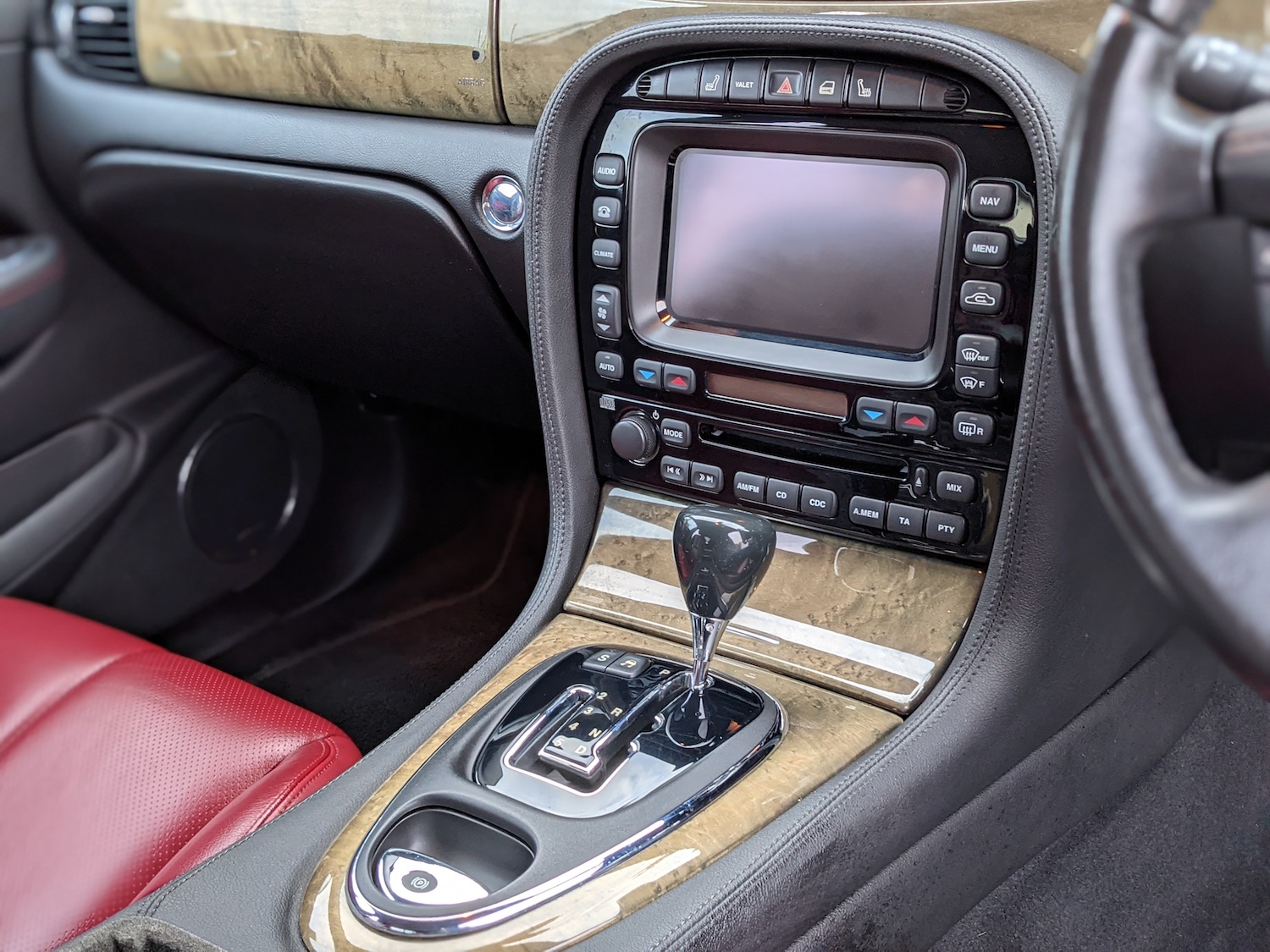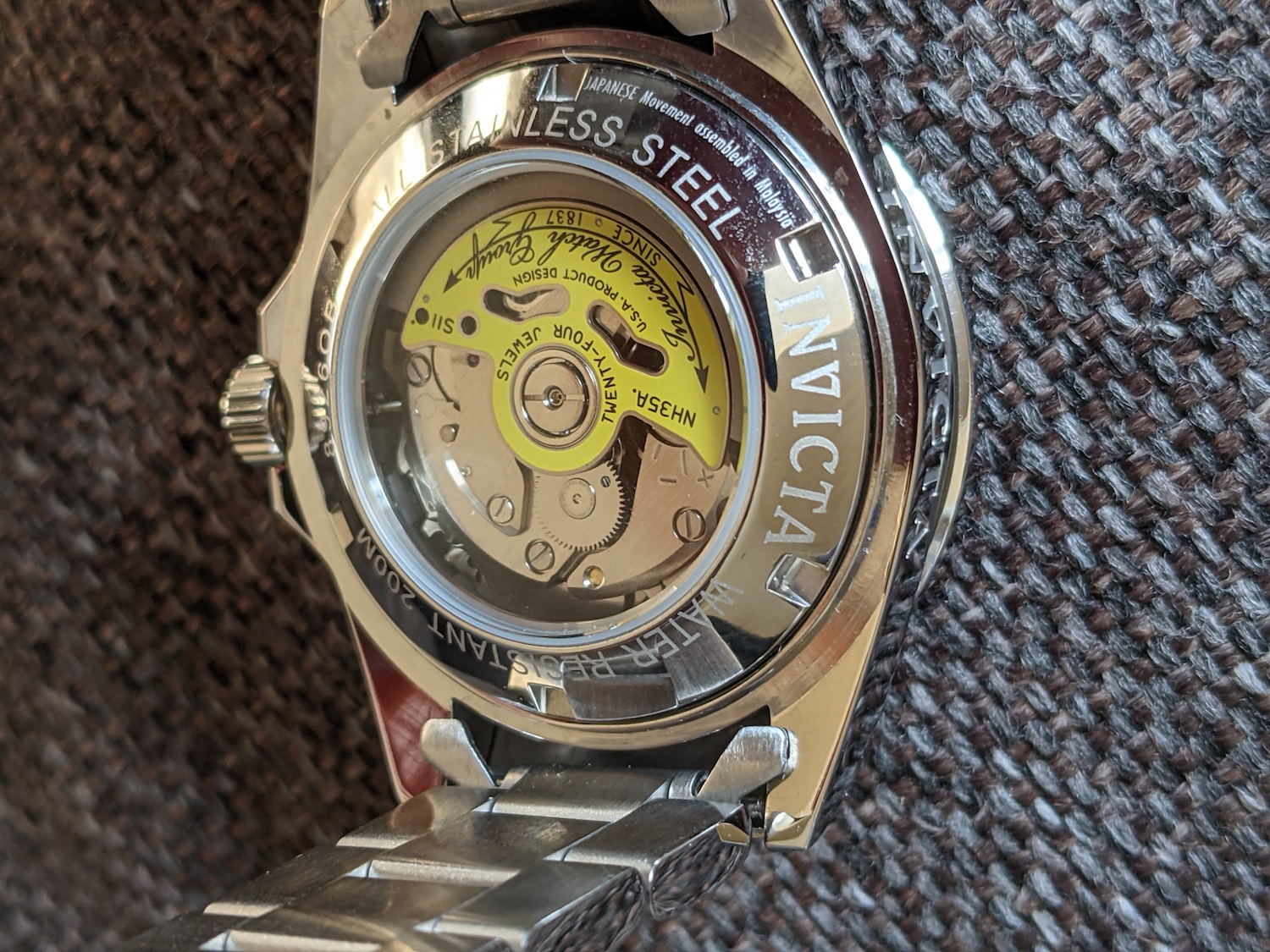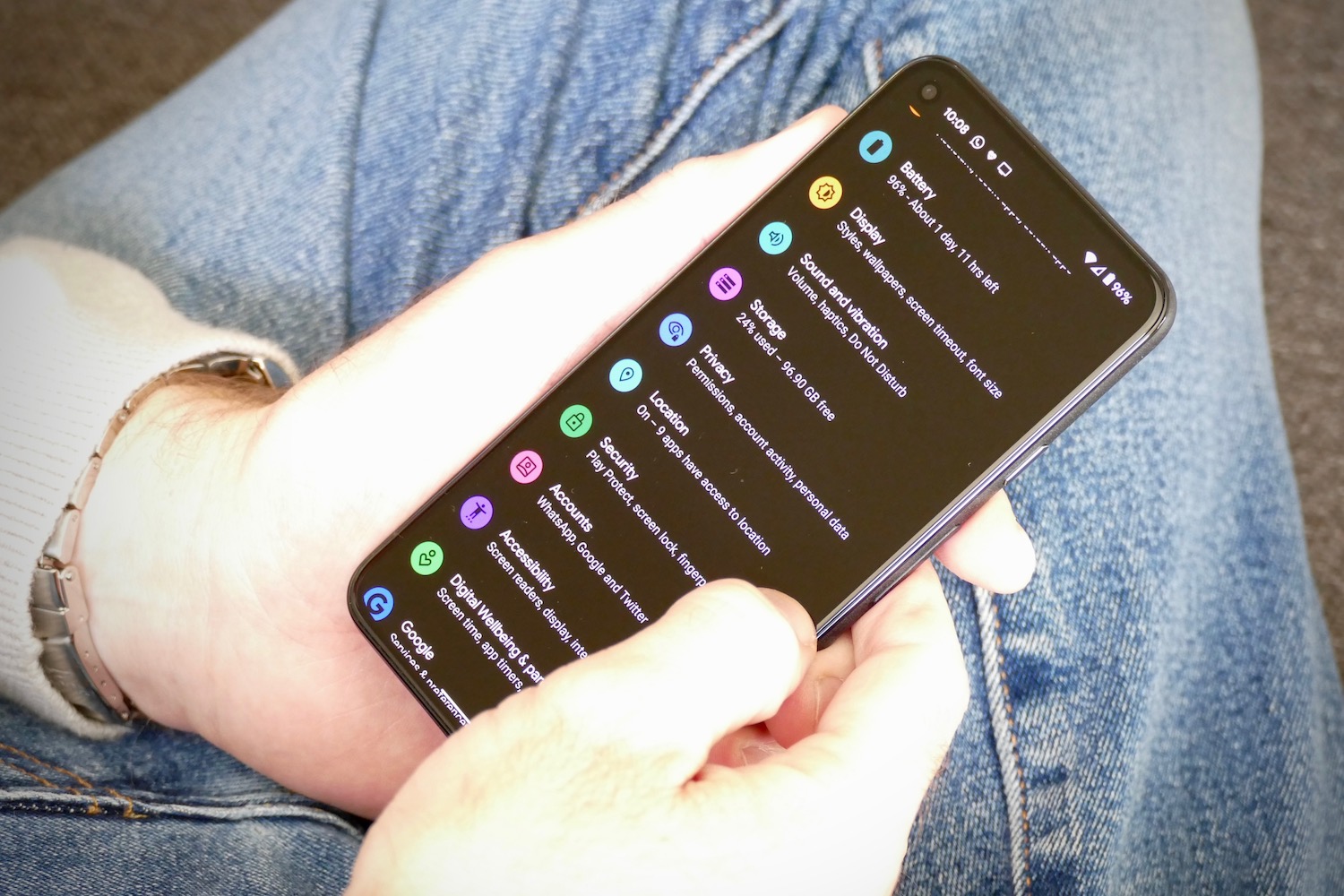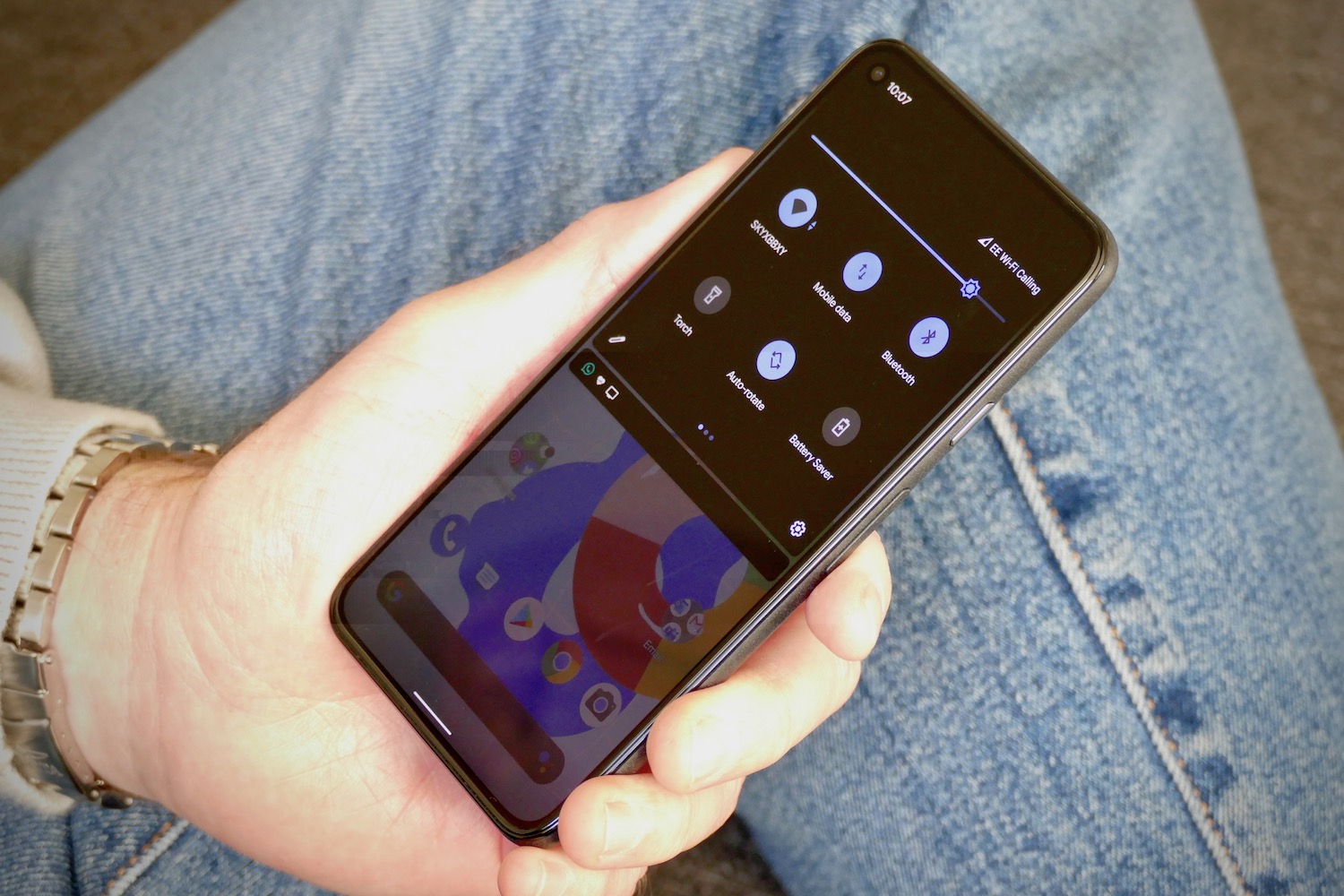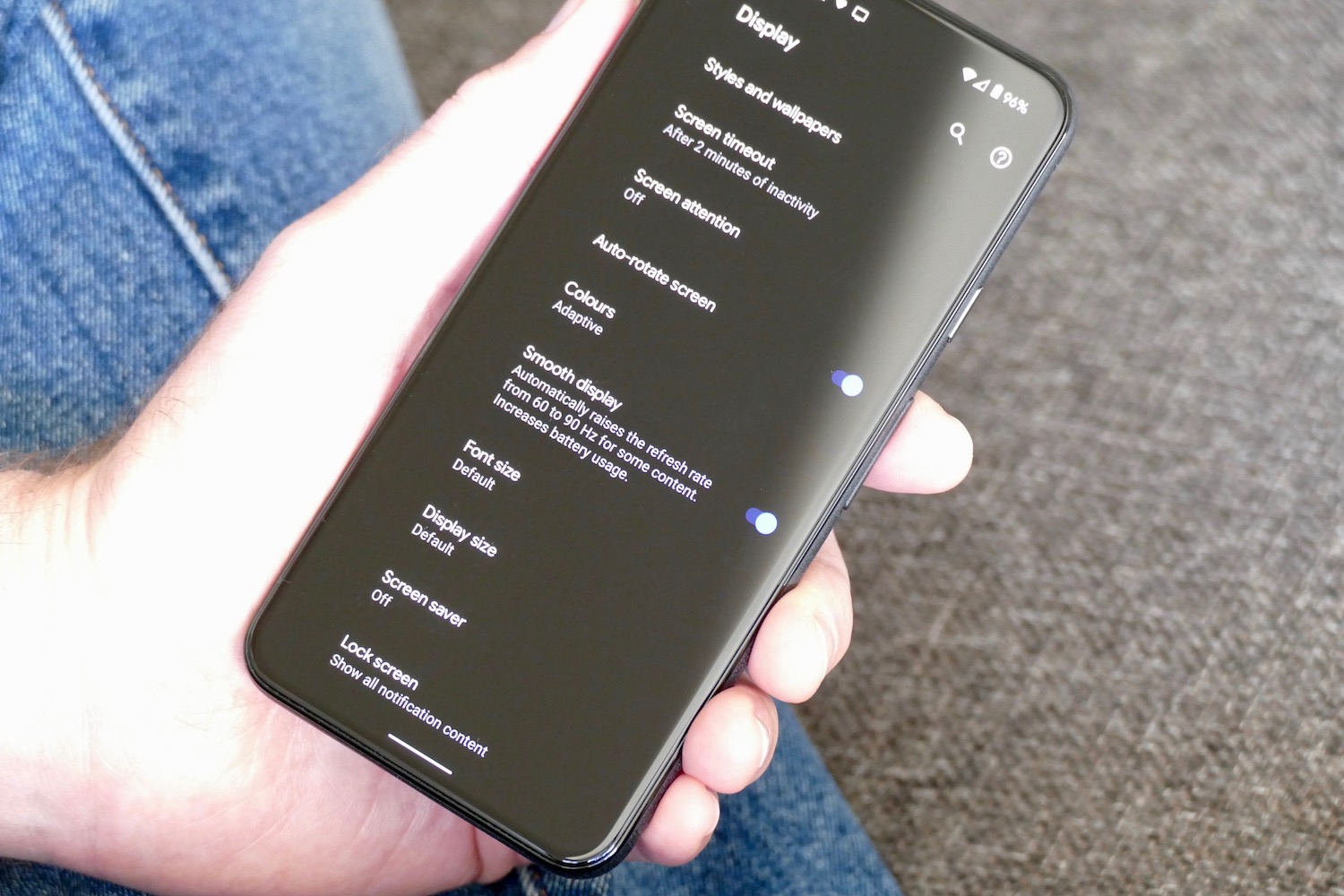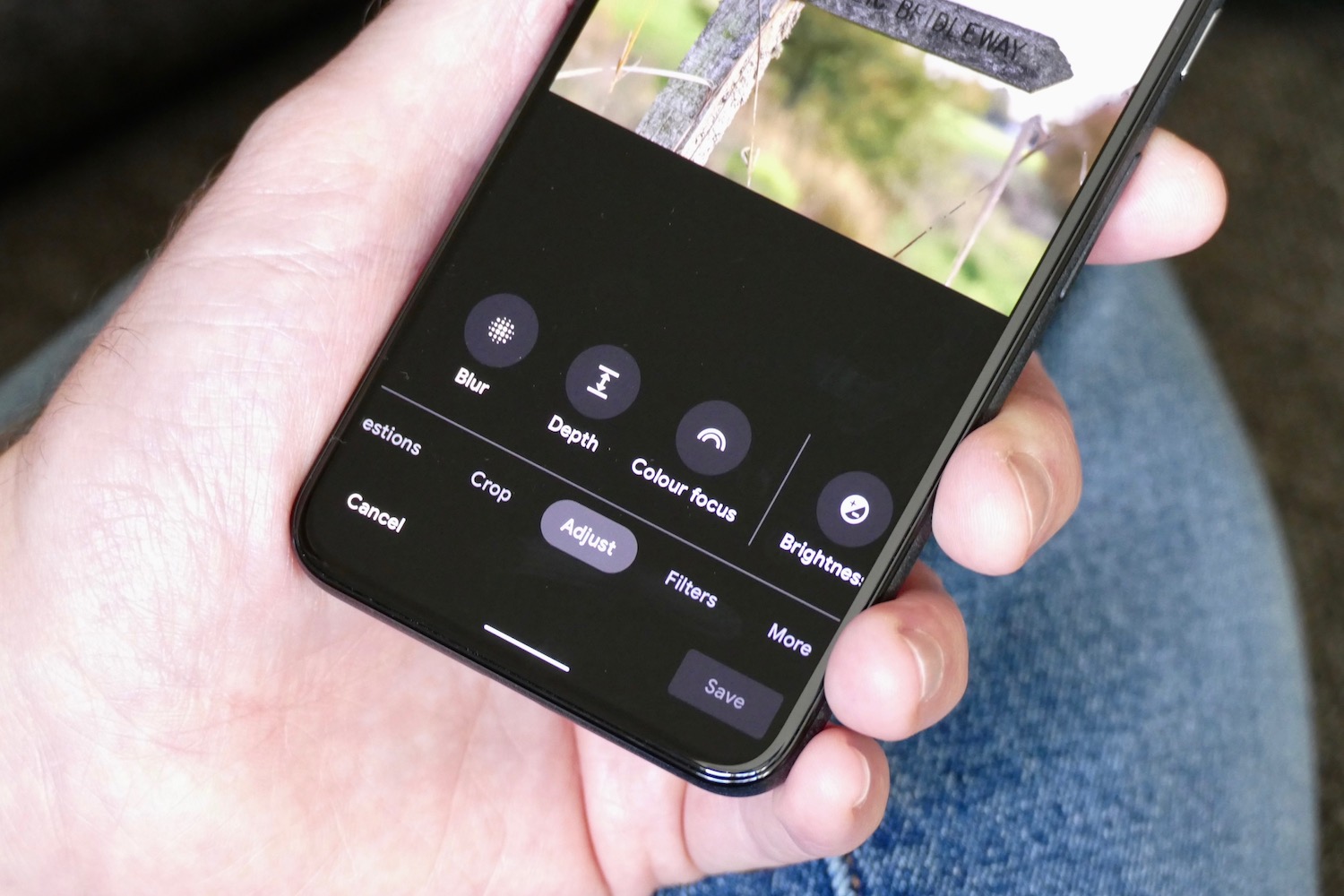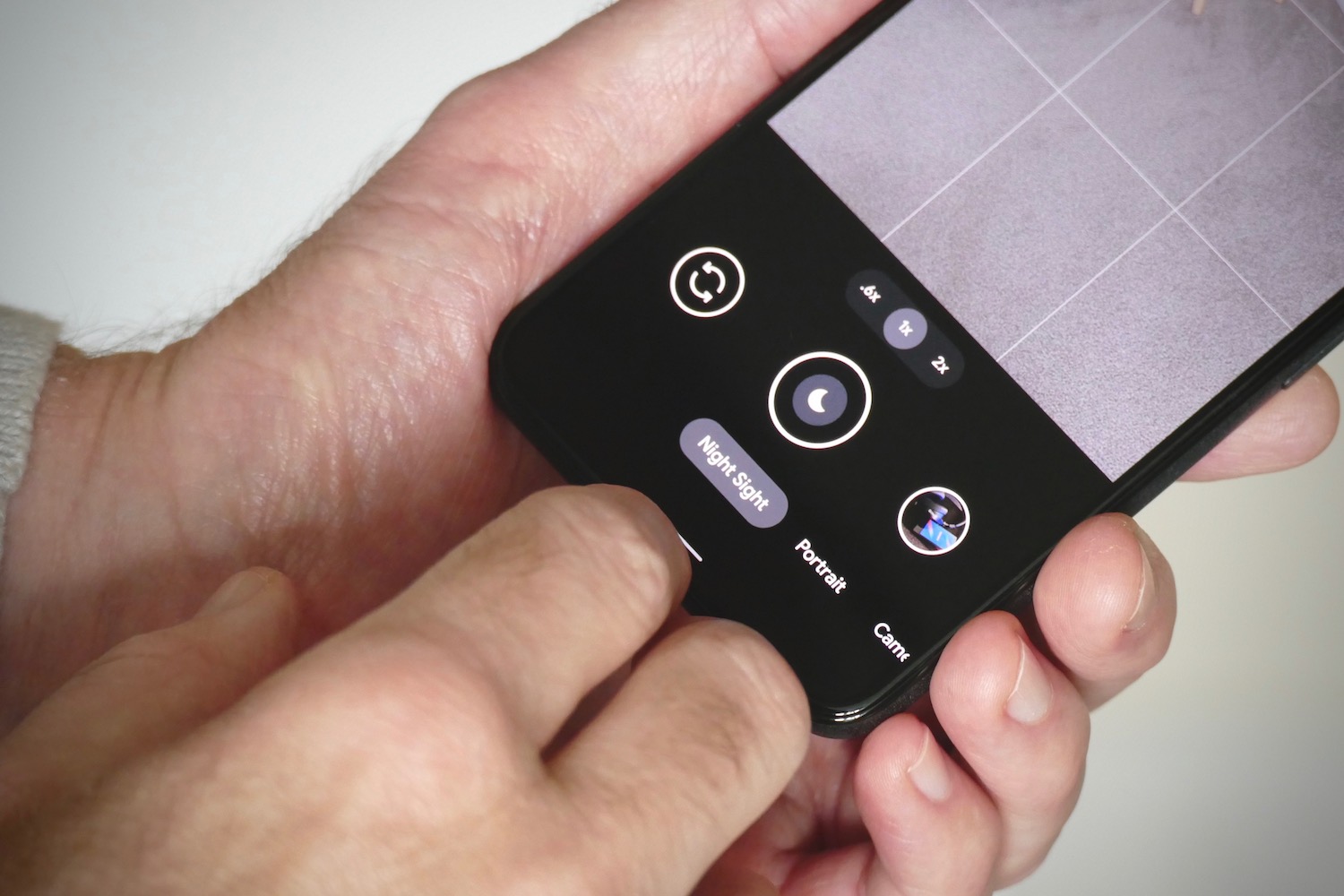“The Pixel 5 represents the very best of Google's software and hardware prowess, all crammed inside a compact, lightweight, but slightly dull-looking body.”
- Compact and lightweight
- Detailed 90Hz screen
- Highly capable camera
- Two-day battery life
- Dull design
- Missing that special quirky Google feature
I’m all for getting rid of gimmicks on smartphones, first to reduce the price and second because not everyone uses these “features” very often. That’s why I was pretty excited about the Pixel 5, which concentrates on the camera, battery life, software, and most importantly this year, the price.
I’ve been using the Pixel 5 for a little while, and frustratingly, Google has gone a little too far in its normalization efforts. Gone are the quirks that made some warm to old Pixels, and while the camera is still a winner, it hasn’t moved the game forward in the way the Pixel 4 did. I’m getting a bit ahead of myself here, so let’s go into detail.
Hardware and design
Google has never been one for giving the Pixel a wild design, but it is very good at making a sensibly sized phone, and the Pixel 5 is exactly right. The metal body is welcome, as it’s warm to the touch, doesn’t get covered in fingerprints, and should be durable too. The nicely rounded sides make it easy to grip and hold, and the overall size and 8mm thickness — similar to other well-proportioned phones like the iPhone 11 Pro — is just right. It’s also astonishingly light at just 151 grams.

All this makes it very easy to live with, and the Pixel 5 will appeal to anyone who finds many phones released recently too large to hold. Most competing Android phones are much bigger, and it’s only the iPhone 11 Pro that comes close to the Pixel 5’s perfectly judged dimensions. By stripping away some of the quirky features seen on previous Pixel phones, Google has settled on a phone that’s sized just right. And with a slightly larger screen than on the Pixel 4, you never feel shortchanged when watching video or playing games.
However, it’s impossible to get excited about the Pixel 5’s looks, especially if you buy the black one. It’s understated to the point of invisibility, and doesn’t really have that all-important premium air about it. The fingerprint sensor is a good example of this. It’s on the back rather than under the screen, and therefore works really well, but it also ages the device’s design. Annoyingly, it isn’t complemented by a secure face unlock system like on the Pixel 4. There’s actually no face unlock at all.

The side buttons are made of metal, but have the same clicky feel as the plastic ones on the Pixel 4a, which costs almost half the price. That’s great for the Pixel 4a, but not so good for the Pixel 5. There really isn’t much more to say about the design, which is a major indication that Google’s simplification efforts have gone too far. Without a fun experimental Google feature on board, like the Pixel 4’s squeezable sides, the Pixel 5 on the surface is a bit dull. It’s best to seek out the Sorta Sage (aka green) color, which does inject some character into the phone.
Screen and audio
The 6-inch OLED screen has a 90Hz refresh rate and a 2340 x 1080 resolution, is covered in Gorilla Glass 6, and supports HDR10+. It’s bigger than the Pixel 4 and 4a’s screens, but not as big as the Pixel 4 XL or 4a 5G’s. Google’s decision to remove the sensors required for Soli gesture controls and the infrared face unlock means the large bezels on the Pixel 4 have disappeared, resulting in minimal bezels of a uniform size on the Pixel 5. The selfie camera lives in a hole-punch cutout.

If you’ve never used a phone with a 90Hz refresh rate before, you’re in for a treat. It’s definitely easier on the eyes compared to a phone with a 60Hz screen, resulting in less fatigue, And combined with Android 11’s smoothness, it makes scrolling through Twitter, Chrome, and other apps very pleasurable.
It’s a beauty, too. It’s bright and detailed, but cooler than the Galaxy S20 FE, and with less saturation. Carfection’s Aston Martin Vantage Roadster review highlights these differences, with the silver car looking considerably more silver on the Pixel than on the Samsung phone, while the blue sky is more pronounced on the Galaxy phone. It’s a similar story when comparing it with the OnePlus 8T, but put the Pixel 5 against the cheaper Pixel 4a, and the performance is almost indistinguishable.

The speakers are decent, but they lack a bit in both volume and bass, and can’t match the OnePlus 8T and Galaxy S20 FE’s more rounded, deeper sound. The takeaway here is that although attractive, the Pixel 5’s screen isn’t any better than the competition, and because the speakers are a little wimpy, the OnePlus 8T and Galaxy S20 FEprovide a better video-watching experience.
Cameras
The primary camera on the Pixel 5 is the same 12.2-megapixel, f/1.7-aperture camera with Phase Detection Autofocus (PDAF) and optical image stabilization (OIS) that you’ll find on the Pixel 4a and the Pixel 4. A second 16MP f/2.2 aperture wide-angle camera joins it on the Pixel 5, and it can also be found on the Pixel 4a 5G, but the Pixel 5 does not have the telephoto camera of the Pixel 4 — a switch Pixel fans were asking for last year.
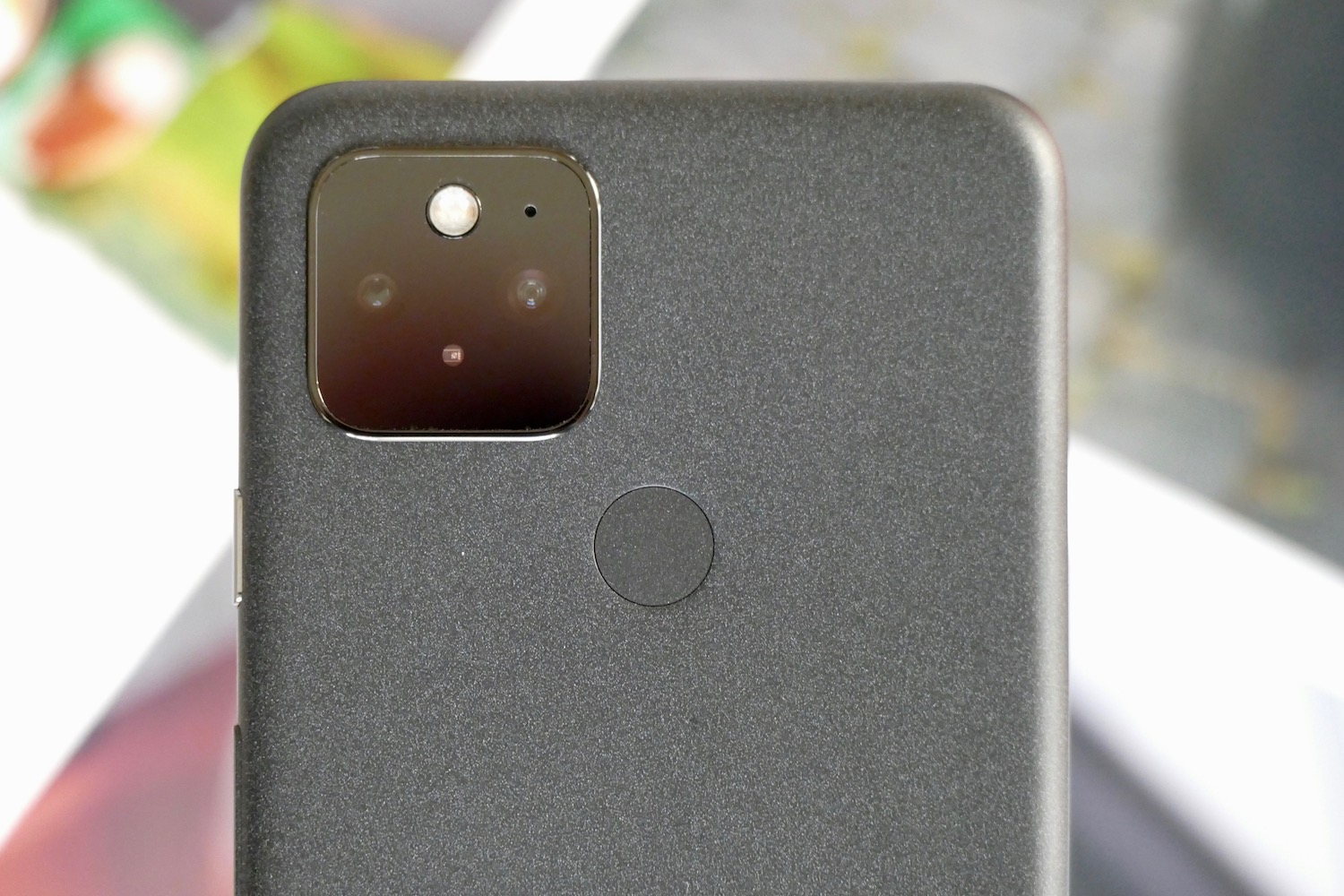
The physical cameras are only part of the story, and it’s really Google’s computational photography that’s the star. Google says the software has been given a serious upgrade for the new phone, and that makes up for using the same sensor as before. There are a few new features, including Night Sight portrait shots and new editing features for portrait shots.
Let’s talk about this first, because it’s a good demonstration of Google’s software prowess. Portrait shots can be edited extensively, with the ability to adjust the background blur, remove the background color, and turn the entire image black-and-white. This is done at the tap of a button, and you can get deeper into editing the blur, depth, and color, too. All this works whether you’re taking portraits with the rear or the front camera, and there’s a special mode to adjust the light source with Portrait selfies. See above for examples of what’s possible. It’s really fun, very effective, and quite simple to use the feature.
That sums up the Pixel 5’s camera very well in general. It really is a great point-and-shoot, because you’re assured that no matter the environment or conditions, it’ll take a cracking photo. That simplicity and ability is addictive, and it’s fun to go out and take lots of pictures, just to see what you can get. The wide-angle adds versatility and opportunity for dramatic shots, but some will miss the telephoto. Google’s not willing to please everyone by including both, sadly.

The Pixel 5’s camera is brilliant, but it isn’t really a big generational leap over the Pixel 4, and not only does the much cheaper Pixel 4a take basically the same great photos, but the competition has caught up with Google on the software side. Samsung’s cameras are consistent these days, but it’s the camera on the Apple iPhone 12 and 12 Mini that Google should be most concerned about, as the hardware around the camera is more desirable than the Pixel 5’s — and pricing is similar.
Performance and software
On paper, the Pixel 5 is not a “flagship” phone, due to it using the Qualcomm Snapdragon 765G processor and not the Snapdragon 865 or 865 Plus. It’s another way to chop the price down, and unless you’re a spec-sheet obsessive, it’s not a massive deal. I consider myself a normal user, in that I use the camera, use social apps, make video and voice calls, play a few games, watch video, and keep up with work tasks.

It does all these tasks without interruption — and without feeling like it’s underpowered. Play Asphalt 9 Legends, and it’s as visually impressive and smooth to play on the Pixel 5 as it is on the OnePlus 8T. If anything, there are times when the Pixel 5 runs more smoothly than some more powerful phones, such as when it rotates the screen from portrait to landscape and vice versa in YouTube. A lot of this comes down to Android 11, the latest version of Google’s software, and this is an advantage the Pixel 5 has over the competition.
Android 11 on the Pixel 5 (and the Pixel 4, Pixel 4a, and Pixel 4a 5G) could be labeled boring, just like the design, but the dullness is its strength. There’s no garnish or additional branded apps, just fast, smooth, and simple software. However, I’ve encountered a couple of problems with my phone that have proved frustrating.
The first has been an intermittent fault with the microphone, where it fails to activate so callers can’t hear me, and my voice messages turn out to be silent. The problem is cured by turning the phone off and on again, but you don’t know when the issue arises until it’s too late. My Pixel 5 has dropped my Wi-Fi signal more than other phones, and consistently has one fewer bar of reception on both Wi-Fi and cellular connections. It’s possible this is to do with the metal body.
The reception issue is not a deal breaker, but something to be considered if you already live in an area with poor reception. It should be noted that the Pixel 5 has 5G, of course, which opens up new networking possibilities as well. The microphone problem may be an issue with my phone only, and after alerting Google ahead of publication here, I’m expecting a replacement review model to see if the problem persists. This issue has not affected the score of the phone — yet.
Battery
Battery life is one of the biggest improvements over the Pixel 4. My phone has easily lasted a day with normal use, and if I turn it off overnight, it lasts most of the second day, too. After the woeful Pixel 4, this is most welcome. It’s conservative with power too: With light use on a busy day that saw me ignore my phone, the battery was still above 80% by 4 p.m.

The phone comes with an 18W-watt wired charger in the box, and supports wireless charging. That’s a clever trick considering the phone’s body is metal — Google cut a hole in the back and filled it with a resin that is visually indistinguishable from the rest of the body. Place another device on the back of the Pixel 5, and it’ll top up the battery wirelessly using its own power. This worked with my iPhone 11 Pro, but not with my Sony WF-1000XM3 headphones, unfortunately. These reverse wireless charging systems can all be a bit finicky.
Price and availability
The Google Pixel 5 costs $699, or 599 British pounds, comes in one version with 8GB of RAM and 128GB of storage space, and is available now from Google, Amazon, and other retailers. It supports 5G, provided you are in an area with coverage and have the proper carrier plan, and the Pixel 5 in the U.S. also includes mmWave 5G support for the Verizon (and increasingly, T-Mobile and AT&T) network.
Our take
Buy the Pixel 5 and you’ll get a well-proportioned phone with a beautiful screen, an excellent camera, fast performance, and easy-to-use software. What else do you need? Technically, not much, but it would be nice to look at the Pixel 5 and feel something, rather than just ambivalence.
Is there a better alternative?
There are several great alternatives to the Pixel 5 available. The main challengers are the Samsung Galaxy S20 FE and the OnePlus 8T. Both use the Snapdragon 865 processor and higher-class designs, and although the cameras aren’t quite as good as the Pixel’s, most people will find them perfectly decent.
The Apple iPhone 12 is shaping up to be a distinct challenger, and the forthcoming iPhone 12 Mini may also take the Pixel 5 on. However, perhaps the best alternative to consider is the Pixel 4a 5G, which does almost everything the Pixel 5 can do but for $200 less at $499. If you’re not worried about the wide-angle camera or 5G, then the $349 Pixel 4a is also excellent.
How long will it last?
The Pixel 5 is an excellent long-term smartphone purchase. The conservative looks mean it’ll never look more out of date than it does now. It features 5G for the future, as well as two years of major Android software updates guaranteed. It has an IP68 water-resistance rating, and the metal body will be tougher than a glass phone, plus Google makes some attractive cases to complement the Pixel 5. There’s no reason why the phone won’t serve you well for two to three years.
Should you buy one?
Yes, the Pixel 5 is Google’s top smartphone of 2020, and while it doesn’t have the most exciting looks, it represents the best of Google’s software and hardware prowess, all at a great price.













